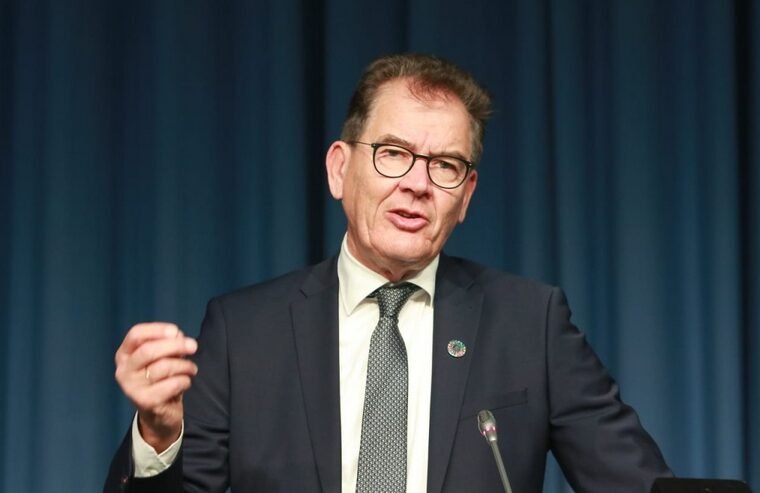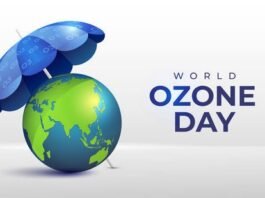The Significance of World Ozone Day and the Montreal Protocol
World Ozone Day, celebrated annually on September 16, serves as a reminder of the critical importance of the ozone layer and the global efforts to protect it. Established to commemorate the signing of the Montreal Protocol in 1987, this day highlights the ongoing commitments made by nations to curb substances that deplete the ozone layer, such as chlorofluorocarbons (CFCs) and other ozone-depleting substances (ODS). The protocol represents a landmark international agreement that brought together government representatives, scientists, and stakeholders in a collaborative effort to address a pressing environmental concern.
The Montreal Protocol stands out as one of the most successful environmental treaties to date, having effectively phased out the production and consumption of numerous harmful chemicals. This treaty not only has facilitated the healing of the ozone layer but also has contributed to climate change mitigation by reducing greenhouse gas emissions. By recognized targets and providing a framework for compliance, the Protocol ensures that participating countries are held accountable for their commitments. The positive outcomes of the Montreal Protocol underscore the significance of international cooperation in environmental protection efforts.
In the years since its implementation, World Ozone Day has become an avenue for raising awareness about the significance of the ozone layer and the effects of its depletion on global health and the environment. Activities on this day include educational campaigns, workshops, and various outreach programs that aim to inform the public about the actions needed to counter the threats posed by ozone depletion. Governments, industries, and civil society are urged to engage actively in these efforts, recognizing that safeguarding the ozone layer is a shared responsibility vital for future generations.
UNIDO’s Role in Implementing the Montreal Protocol
Since its establishment, the United Nations Industrial Development Organization (UNIDO) has played a pivotal role in the implementation of the Montreal Protocol, which aims to restore the ozone layer and curb the emissions of substances that deplete it. As one of the four primary implementing agencies, UNIDO has actively contributed to the success of this global agreement, directly supporting more than 100 countries in their transition toward ozone-friendly technologies. This engagement is noteworthy given the critical intersection between environmental sustainability and industrial development.
UNIDO’s contributions to the Montreal Protocol manifest through various initiatives and projects aimed at modernizing industrial production processes. These initiatives encourage the adoption of alternatives to ozone-depleting substances (ODS) while simultaneously fostering economic growth and job creation. For instance, UNIDO has implemented projects that transform traditional production lines into more sustainable operations, demonstrating how technology can facilitate compliance with environmental standards without undermining productivity.
Moreover, UNIDO has been at the forefront in the development and dissemination of sustainable technologies that contribute to the reduction of global carbon emissions. By promoting awareness and providing technical assistance, UNIDO enables industries to embrace eco-friendly manufacturing practices. The organization’s efforts are not solely limited to technical adjustments but extend to enhancing the capacities of local stakeholders, ensuring that these countries can independently advance toward a sustainable future.
The positive impacts of these projects underscore UNIDO’s unwavering commitment to the objectives of the Montreal Protocol. By aligning industrial development with environmental sustainability, UNIDO effectively contributes to the global effort to combat climate change, proving that economic growth does not have to come at the expense of the environment. In essence, UNIDO’s role exemplifies a balanced approach to integrating industrial needs with ecological responsibility.
Achievements and Impact of the Montreal Protocol
The Montreal Protocol, established in 1987, serves as a cornerstone of global environmental governance. This treaty has achieved remarkable success in phasing out substances that deplete the ozone layer, demonstrating not only its commitment to atmospheric protection but also its positive influence on climate action. Recent evaluations indicate that the implementation of the Montreal Protocol has led to significant climate benefits, chief among them being the avoidance of approximately 41 million metric tons of carbon dioxide emissions in the past year alone. This impressive reduction equates to the annual emissions produced by over 9.2 million cars, illustrating the substantial impact of the Protocol on global carbon output.
The protocol’s effectiveness is further amplified by its collaborative nature. Various international bodies, such as the United Nations Environment Programme (UNEP), United Nations Development Programme (UNDP), and the World Bank, play vital roles in supporting the implementation of the agreement. These organizations facilitate financial and technical assistance to developing nations, ensuring that all countries can participate in the phase-out of harmful substances and transition to more sustainable practices.
In essence, the Montreal Protocol exemplifies a collaborative international effort that transcends borders, demonstrating how collective action can yield tangible results in the fight against climate change. The cooperative framework established by this protocol not only addresses ozone layer depletion but also contributes directly to global climate strategies. Such initiatives underscore the essential need for a unified approach in confronting environmental challenges, showcasing the power of international cooperation in achieving long-term sustainability.
As we reflect on the accomplishments of the Montreal Protocol, it is clear that sustained commitment and collaboration remain paramount. The collective efforts of all engaged stakeholders continue to yield positive outcomes, setting a precedent for future environmental initiatives.
Looking Ahead: Future Goals and the Kigali Amendment
The Kigali Amendment, which came into force in 2019, represents a significant advancement in global efforts to mitigate climate change by targeting the phasedown of hydrofluorocarbons (HFCs). HFCs are potent greenhouse gases that, despite their utility in refrigeration and air conditioning, contribute significantly to global warming. The objectives outlined in the Kigali Amendment not only aim to reduce the consumption and production of HFCs but also serve as a catalyst for promoting energy-efficient technologies worldwide.
One of the compelling aspects of the Kigali Amendment is its potential climate benefits. Estimates indicate that the implementation of this amendment could prevent an increase of up to 0.5°C in global warming by the end of the century. Furthermore, when combined with energy efficiency measures, it is projected that the amendment could help avoid up to 10°C of warming by 2100. This synergistic approach highlights the importance of integrating climate actions across various sectors, facilitating deeper cuts in greenhouse gas emissions while fostering sustainable development.
Moreover, the Kigali Amendment aligns well with the broader climate objectives addressed in the Paris Agreement, reinforcing the notion that international cooperation is essential for effective climate action. The phasedown of HFCs is anticipated to generate significant economic benefits, including job creation and technological innovation, as countries strive to meet their commitments under the agreement. This scenario underscores the necessity for countries to work collaboratively, sharing knowledge and resources to overcome the contemporary challenges that climate change presents.
As we look to the future, it is imperative that nations prioritize the implementation of the Kigali Amendment and explore innovative solutions while ensuring alignment with sustainable development goals. The opportunity for transformative action is within reach, paving the way for a more sustainable and resilient global environment.



